The Tyrannical Reign of Qin Shi Huang: 8 Decades of Brutal Conquest
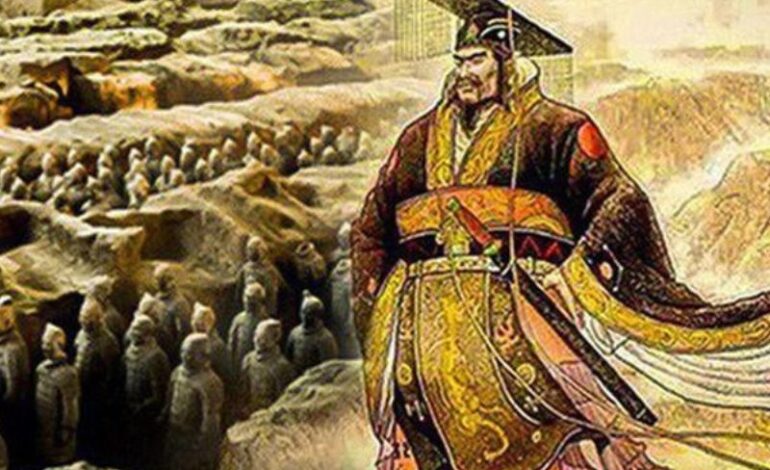
The Ruthless Rise and Transformative Legacy of Qin Shi Huang
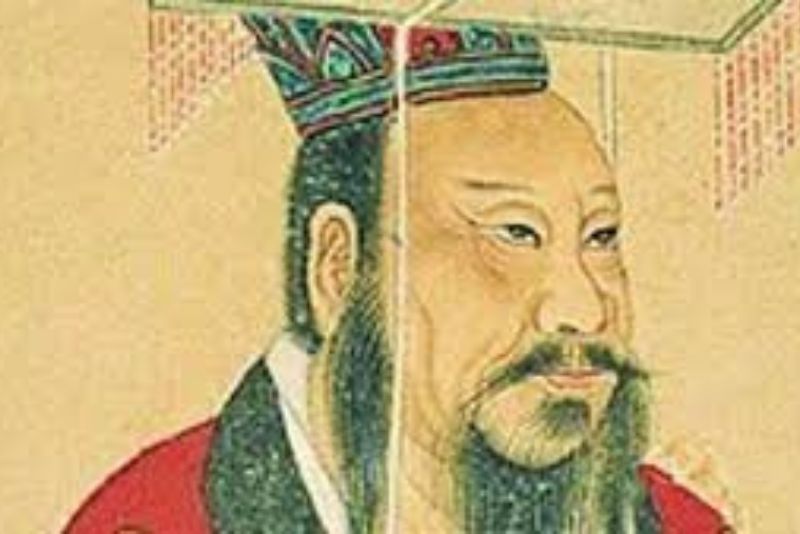
Born Zhao Zheng in 259 BC in the state of Qin, the future Qin Shi Huang, or “First Emperor of Qin,” was destined for a life of conquest and ambition from the very beginning. As the crown prince of the powerful Qin kingdom, he was raised amidst the tumultuous backdrop of the Warring States period, a time of near-constant conflict and political fragmentation that had plagued China for centuries.
From a young age, Zhao Zheng witnessed firsthand the devastating effects of this incessant warfare, as the various kingdoms vied for supremacy over the Chinese heartland. It is no surprise, then, that when he ascended to the Qin throne in 246 BC at the tender age of 13, he was driven by a relentless desire to restore order and unify the fractured landscape under his rule.
Reign as King of Qin
As the young king of Qin, Zhao Zheng immediately set about consolidating his power and expanding the reach of his kingdom. He surrounded himself with a cadre of ruthless and capable advisors, who helped him devise a series of bold military campaigns and strategic alliances that would ultimately lead to the subjugation of all rival states.
One of Zhao Zheng’s first major victories came in 230 BC, when his forces captured the powerful kingdom of Zhao, a long-standing rival of Qin. This triumph not only bolstered his military might but also allowed him to seize valuable resources and territory, further strengthening his position within the Warring States system.
Over the next two decades, Zhao Zheng’s armies would march across the Chinese landscape, steadily conquering one kingdom after another. Through a combination of shrewd diplomacy, tactical brilliance, and unyielding determination, he forged a path of unparalleled conquest, earning him the nickname “The Great Unifier.”
Reign as Emperor of Qin
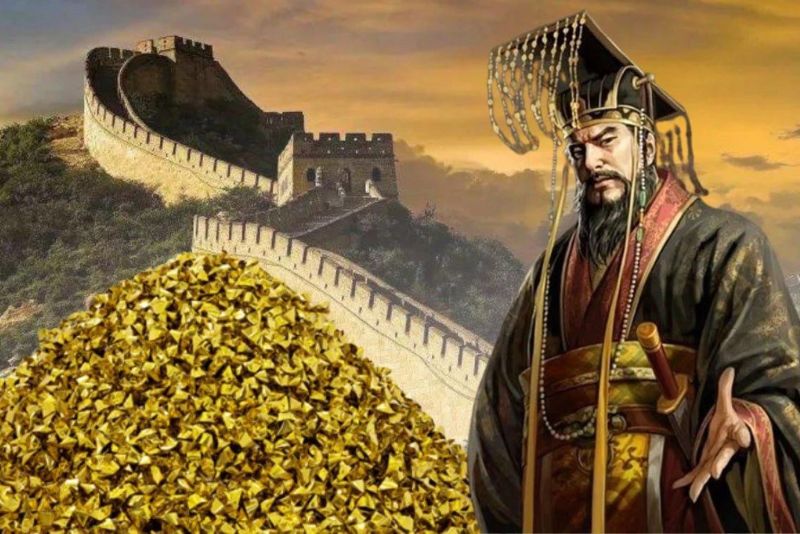
In 221 BC, after nearly three decades of relentless campaigning, Zhao Zheng achieved his ultimate goal: the complete unification of China under his rule. Declaring himself Qin Shi Huang, or “First Emperor of Qin,” he ushered in a new era of imperial governance that would shape the course of Chinese history for centuries to come.
One of Qin Shi Huang’s first acts as emperor was to implement a series of sweeping reforms designed to cement his control over the newly unified empire. He standardized the system of weights, measures, and currency, ensuring that the diverse regions of China were bound together by a common economic framework. Additionally, he mandated the use of a single written script, known as the “Small Seal” script, which facilitated communication and record-keeping across his vast domain.
Perhaps Qin Shi Huang’s most enduring legacy, however, was his massive infrastructure projects, which transformed the physical landscape of China and solidified his grip on power. The construction of the Great Wall, undertaken through the forced labor of conscripted workers, stands as a testament to the brutality of his regime, as well as his determination to fortify the borders of his empire against potential invaders.
Equally impressive was the emperor’s ambitious road-building program, which connected the far-flung corners of his domain with a vast network of highways and canals. This transportation system not only facilitated the movement of troops and goods but also helped to integrate the diverse populations of China into a cohesive whole, further strengthening the bonds of imperial unity.
The Dark Side of Qin Shi Huang’s Legacy
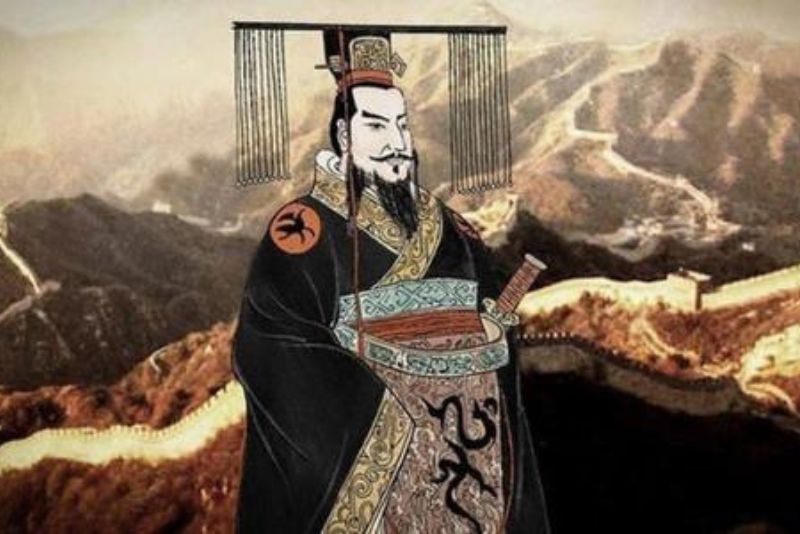
Yet, for all of his accomplishments, Qin Shi Huang’s reign was also marked by a deep and abiding cruelty. Acutely aware of the fragility of his power and the constant threat of rebellion, he employed an iron-fisted approach to governance, ruthlessly suppressing any form of dissent or challenge to his authority.
Perhaps the most notorious example of Qin Shi Huang’s repressive tactics was his order to burn the works of scholars and intellectuals who dared to question his rule. This act, known as the “Burning of the Books,” effectively silenced the voices of opposition and solidified the emperor’s status as an authoritarian tyrant whose quest for power came at a great cost to the Chinese people.
Additionally, the construction of the Great Wall and other monumental projects was carried out through the forced labor of conscripted workers, many of whom perished under the harsh conditions of their toil. This disregard for human life and well-being further cemented Qin Shi Huang’s reputation as a tyrant whose ambition knew no bounds.
The Legacy of Qin Shi Huang
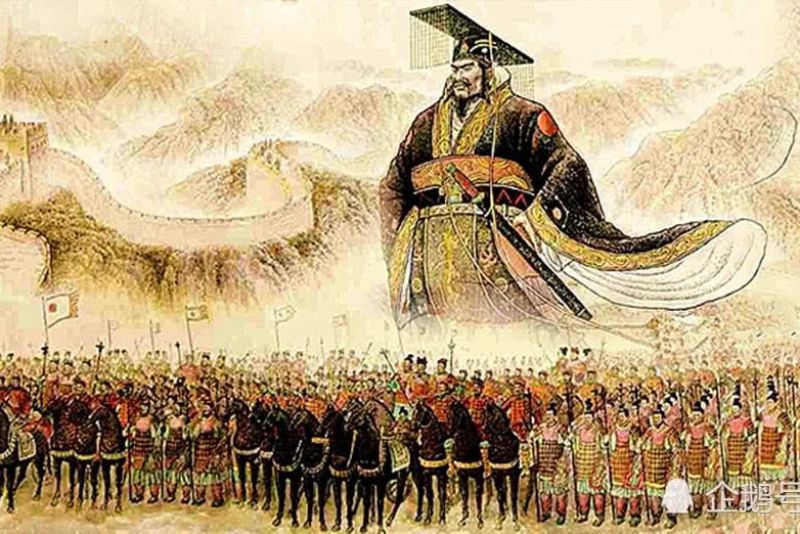
Despite the brutality of his reign, Qin Shi Huang’s impact on the trajectory of Chinese history cannot be overstated. His unification of the warring states laid the foundations for the centralized, bureaucratic state that would come to define the imperial system for centuries to come. The emperor, as the embodiment of absolute power, and the civil service, as the backbone of government, would become the hallmarks of this enduring model of governance.
Moreover, Qin Shi Huang’s influence can still be felt in the modern-day People’s Republic of China. The country’s emphasis on national unity, its continued use of a standardized written language, and its pursuit of technological and infrastructural development all bear the hallmarks of the first emperor’s vision for a strong, centralized state.
In this sense, Qin Shi Huang’s legacy can be seen as a reflection of the Chinese people’s deep-seated desire for order, stability, and the preservation of their cultural heritage. His ruthless methods may have been abhorrent, but his ability to unite the fragmented landscape of ancient China and forge a lasting imperial system speaks to the enduring power of his ideas.
As we gaze upon the towering monuments that bear Qin Shi Huang’s name, we are reminded of the paradox at the heart of his legacy – a man whose ambition and determination reshaped the course of Chinese history, yet whose actions were often cruel and oppressive. It is a legacy that continues to captivate and challenge us, a testament to the enduring impact of one of the most pivotal figures in the annals of Chinese civilization.

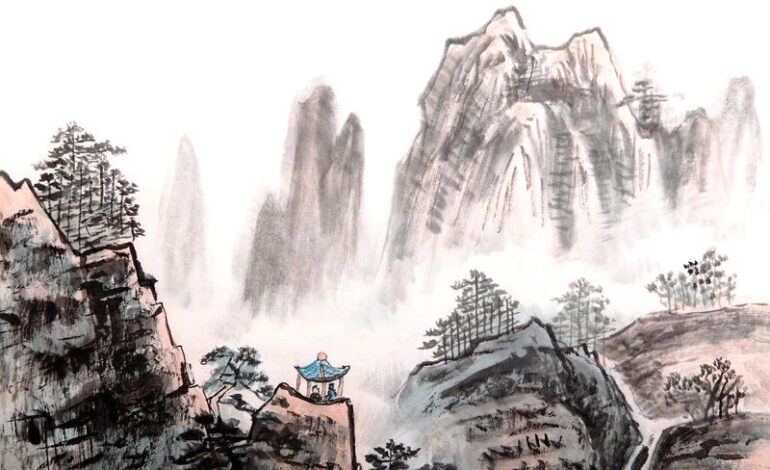






![Top 5 Most Powerful Mysterious Creatures Of All Time[Updated 2024]](https://newsdailybeats.com/wp-content/uploads/2024/06/mystery-creatures-1.jpg)
